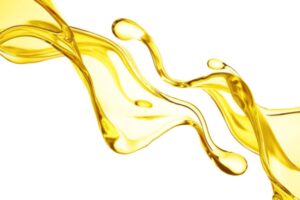The Different Types of Commercial Fuel
Contents
Comparing On-Road vs. Off-Road Diesel
Broco Energy® has the experience, expertise and resources to meet the commercial fuel needs of a diverse base of businesses in New England. Among our commercial fuel products is ultra-low-sulfur (ULS) diesel fuel, both on-road and off-road. Let’s take a closer look at this product.
Diesel fuel is a distillate fuel oil that’s primarily derived from crude oil. It’s a vital fuel for freight trucks, buses, boats, trains and a range of off-road vehicles and equipment.
On-Road vs. Off-Road Diesel

There is very little difference between on-road and off-road diesel besides how they look and how they are sold and taxed.
On-road diesel is not dyed. You can purchase it at gas stations from a pump, and it is subject to taxes and fees.
Off-road diesel is dyed red and, as the name suggests, cannot be used for road vehicles. It’s used in power generation, space heating, forklifts, farm equipment, and much more. Off-road diesel is often much less expensive since it isn’t subject to the same taxes. However, you cannot buy it at the pump.
Diesel Fuel vs. Gasoline
While diesel and gasoline are both derived from crude oil, diesel is a denser refined product. It won’t evaporate in the air like gasoline, and it has a much longer shelf life.
Gasoline and diesel engines work differently too. While they are both internal combustion engines, diesel engines must apply pressure and heat to fuel for combustion, while gasoline-powered engines only need air and a spark. That’s because gasoline is flammable, and diesel isn’t. Diesel combustion produces 10-20% more energy than gasoline combustion.
Other Types of Diesel Fuel
Although on-road diesel and off-road diesel are the two primary designations, there are other kinds of fuel that fall into the category of diesel. This includes:
- Winterized fuel can be a blend of diesel, light distillates and kerosene. These blends may have reduced fuel economy, but they are also less susceptible to “gelling” in extremely low temperatures.
- Biodiesel is a gallon-for-gallon replacement for traditional petroleum diesel. It’s made with recycled and organic materials like used cooking oil, soybean oil, animal fats and algae. It is an eco-friendly alternative.
Off-Road Diesel vs. Home Heating Oil
Home heating oil and red-dyed off-road diesel are effectively the same product. However, much of the heating oil used in homes in the Northeast today also contains biodiesel, which is known as Bioheat® fuel.
What Is Biodiesel Fuel?
Biodiesel is the first and only EPA-designated advanced biofuel in commercial-scale production across the country and can be used in existing diesel engines without modification.
Biodiesel and conventional diesel vehicles are the same. Although light-, medium- and heavy-duty diesel vehicles are not technically alternative fuel vehicles, almost all these vehicles are capable of running on biodiesel blends.
Biodiesel raises the fuel’s cetane number and improves fuel lubricity. A higher cetane number means the engine is easier to start and reduces ignition delay. Diesel engines depend on the lubricity of the fuel to prevent moving parts from wearing out prematurely. Improved lubricity reduces friction within the moving parts, avoiding additional wear. A primary advantage of biodiesel is that it can improve the lubricity of the fuel at blend levels as low as 1%.
Commercial Fuel Delivery and Service in MA and NH
At Broco Energy®, we stand by our commitment to providing commercial operations with the fuel they need, no matter what.
We respond to commercial fuel needs promptly and professionally. Our team has the equipment necessary to get the job done, and we’re ready to establish the most cost-effective way for you to purchase your fuel.
If you live in Haverhill, MA or one of the many other communities in our service area, please reach out to us if you would like to become a Broco Energy® commercial fuel customer.
